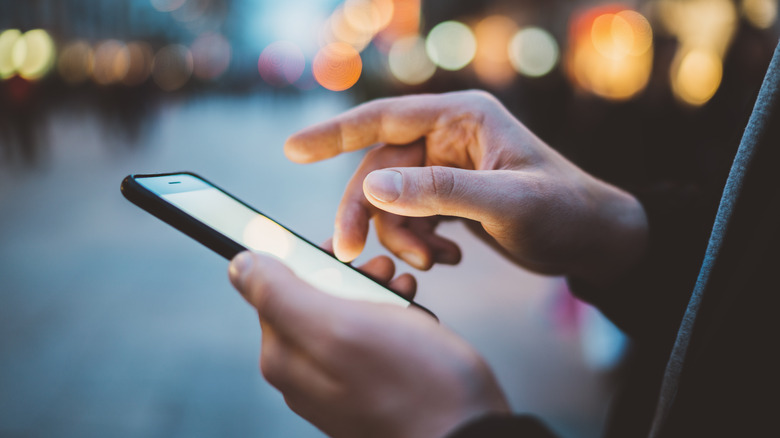How Blue Light Is Really Affecting Your Skin
Your phone may be your new worst enemy with new studies revealing some of the harmful effects blue light can have on your skin. As Dr. Murad (of Dr. Murad skincare), told Harper's Bazaar, "Spending four eight-hour workdays in front of a computer exposes you to the same amount of energy as 20 minutes in the mid-day sun." He adds that just seven minutes of sun exposure at 1 p.m. is enough to give you an immediate tan. But what exactly does this mean? And how is blue light really affecting your skin?
According to dermatologist Dr. Stefanie Williams, "Blue light has the ability to penetrate deeper into the skin compared with both UVA and UVB light." She also notes that blue light can find its way to our dermis, which is where you'll find collagen and elastin — two important components of healthy skin. Also, Williams points out that blue light can lead to pigmentation. In other words, blue light has the potential to cause premature aging.
You can minimize blue light exposure
Blue light doesn't just affect our skin — it can also impact how well we sleep. "If exposed to significant amounts of blue light at night for example, you may find it more difficult to fall asleep," said Dr. Williams. This can also, in a roundabout way, further wreck your skin. Dr. Nadine Pernodet, Estée Lauder Companies' scientific spokesperson, believes lack of sleep can cause dark circles under eyes and wrinkles. "Results indicate that exposure to blue light at night can throw skin's natural circadian rhythm 'out-of-sync,' causing skin cells to continue to 'think' it is daytime, impacting their natural nighttime repair process, which can lead to visible signs of aging, and even dark under-eye circles," Pernodet warned.
Harper's Bazaar believes the best way to protect yourself from blue light is to add a blue light cover to your electronic device, and Paula Begoun of Paula's Choice recommends using your phone on night mode at all times. On top of this, Williams suggests using a topical antioxidant to further protect your skin. "The skin naturally contains antioxidants such as vitamin E; however, these are used up when the skin is exposed to excess free radicals [think UV light, visible blue light and other environmental factors such as pollution]. Applying topical antioxidants in the form of skincare, as well as eating a diet rich in antioxidants [from fresh fruit and vegetables] can boost our skin's defense against oxidative environmental damage."

